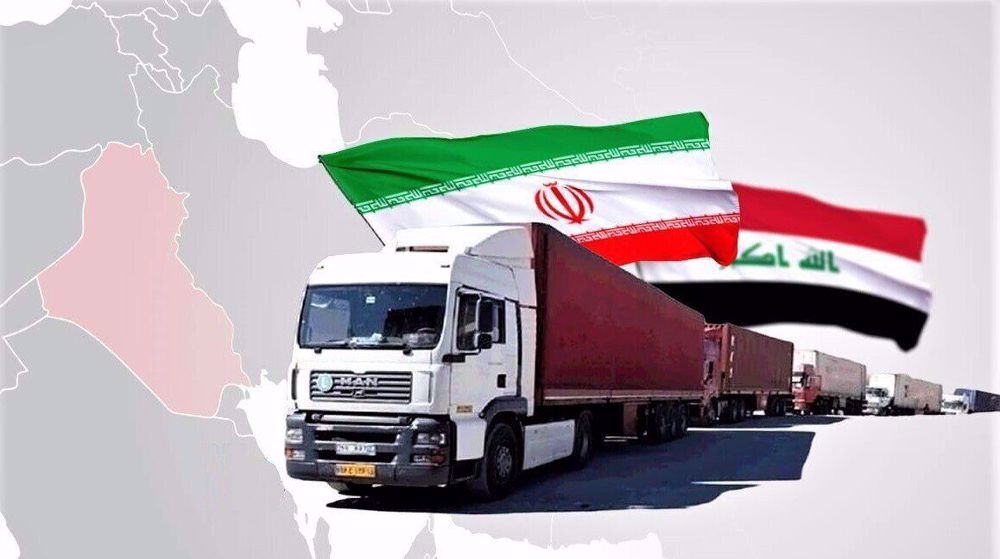In the heart of West Asia, Iran and Iraq share a bond far beyond their border, rooted in history, culture, and everyday survival that has only deepened amid recent challenges.
When the United Nations reimposed sanctions on Iran last month, many expected this to shake the fragile economy of Iraq, its neighbor and closest ally.
But beneath the headlines and warnings lies a story of resilience, adaptation, and the quiet determination of people and communities to keep their world turning.
For decades, Iran has faced waves of sanctions imposed by countries over its peaceful nuclear program. These restrictions limit Iran’s ability to trade freely on the global stage, making life harder for ordinary Iranians.
Yet, Iran has found ways to survive, including through forging strong relations with neighbors such as Iraq, where energy and goods flow daily. These flows have become essential to both nations.
Despite the sanctions, Iran has remained Iraq’s top energy supplier, helping power millions of homes and industries across the country. Iran’s agricultural exports, construction materials, and consumer goods are also a familiar part of Iraqi daily life.
In Baghdad’s bustling markets and quiet towns, Iranian products are everywhere, with electricity powering homes, natural gas fueling factories, and goods from Iran filling shops and supermarkets.
The shelves of stores in southern Iraq, especially in cities like Basra, are lined with Iranian-made detergents, canned goods, car parts, and even sweets. For many Iraqi consumers, these products are not just affordable—they’re part of the household routine.
The trade between the two countries is worth billions of dollars each year. According to estimates from regional economic observers, non-oil trade between Iran and Iraq has exceeded $12 billion annually in recent years.
For Iraq, which has struggled with its own challenges after years of conflict and rebuilding, Iranian energy imports are vital, where without them, the lights could go out, and the fragile economy could falter.
When the UN sanctions returned, many feared this flow would dry up, sending shockwaves through Iraq’s economy. News outlets warned of disaster, and some worried that inflation would skyrocket, making life even tougher for Iraqi families already coping with uncertainty.
Economists began sounding alarms over rising fuel prices, interrupted electricity supplies, and shrinking access to essential goods.
Social media in Iraq buzzed with debate, as many expressed deep concern, fully aware of how closely intertwined the two countries truly are.
Despite these worries, Iran’s long experience with sanctions means it is no stranger to finding creative ways to keep its economy going.
It has developed mechanisms over the years to sidestep restrictions, from alternative banking systems to regional barter agreements. Official trade routes may face hurdles, but informal networks thrive. Iran’s resilience lies not only in policy but in the social capital built with its neighbors.
Along the nearly 900-mile border, goods and energy regularly flow through well-established local networks. Traders and communities, connected by family ties and shared heritage, work together to maintain a steady and reliable exchange.
These exchanges often operate on trust and long-standing relationships. In many border towns, people speak both Persian and Arabic, celebrate the same holidays, and share economic interests that transcend political developments.
These connections act as vital channels, supporting the economic lifeblood and strengthening bonds between the two nations. Trucks pass through border crossings at night and during the day, bringing everything from dry goods to industrial materials.
This ecosystem of trade doesn’t just move products—it sustains employment, supports small businesses, and fosters a sense of interdependence that is not easily undone.
Politically, this close bond is reinforced by groups within Iraq who see Iran as a key ally. Many Iraqi leaders openly support maintaining strong ties with Tehran.
They argue that cutting off this connection would harm Iraq more than anyone else, and they insist that essential goods like food and energy will continue to reach the people. These leaders often point to Iran’s support during Iraq’s fight against Daesh as a key reason for maintaining the alliance.
For Iraq, the partnership brings stability at a time when the country still grapples with internal divisions and economic hardship.
This close relationship goes beyond simple economics. It is about trust built over generations, shared culture, and the realities of life in a challenging region.
People on both sides rely on this connection every day, whether by running businesses, working in energy plants, or buying groceries in local markets. Cross-border marriages, religious pilgrimages, and academic exchanges further cement these ties.
What’s also clear is that sanctions, while powerful, cannot erase deep-rooted connections overnight. History, culture, and necessity create bonds that are difficult to break. For Iran and Iraq, these ties are a form of economic and social resilience, offering a buffer against external pressures and uncertainties.
As the months pass, the Iran-Iraq connection will continue to evolve. The resilience they show today offers insight into the complex ways countries and communities deal with global pressures, balancing diplomacy, survival, and the human need to stay connected.
